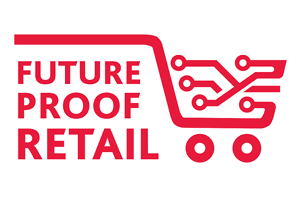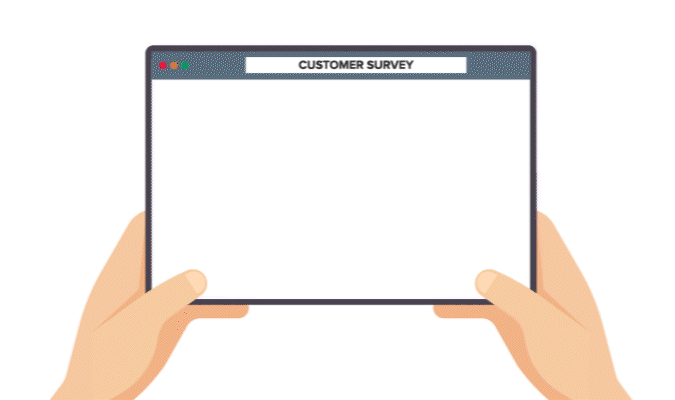Digital Product Passports

You and Your Clothes Will Soon Have Something in Common: A Passport
The year is 2031. You’re in Paris on a business trip, but you have a little free time and decide to go shopping. You always purchase vintage or second-hand, and pride yourself on minimizing your environmental impact — but a sweater at a luxury boutique catches your eye. It’s the perfect color, the perfect size. It’s even on sale! But still, you hesitate. You don’t know where or how it was produced, and you just wouldn’t feel right purchasing it.
Just as you’re about to give up and leave the store you notice a QR code on the sweater’s tag. You scan it and discover that it leads to the sweater’s Digital Product Passport (DPP), which informs you that the sweater is indeed sustainably made. The DPP provides detailed insights about the products’ impact on the environment before you make the purchase. It meets all your criteria. Even though the sweater is a little on the pricey side, it checks every box of your sustainable shopping standards. So, you just can’t resist. You purchase the sweater. This is the future of retail.

The European Union’s (EU) DPP requirements will be implemented through delegated acts beginning in 2026 for many textiles, furniture, electronics, and plastics sold in the EU under the European Commission’s Ecodesign for Sustainable Products Regulation (ESPR). By 2030, these products, and other categories to be determined by ESPR, will need a DPP to be sold in the EU — regardless of where they are manufactured.
Consumers will be able to access information about a product’s materials and their origins, as well as its technical performance, repair instructions, recycling capabilities, and lifecycle environmental impacts — all with a quick QR scan.
DPP requirements will impact companies — regardless of where they are based — that sell in-scope product categories within the EU, as well as those that sell intermediate components of those products. The goal of the ESPR is to promote a more environmentally sustainable and circular approach to products. While DPPs will have the most significant impact on manufacturers — as they will be responsible for ensuring their entire supply chain is compliant — retailers will need to demonstrate transparency and traceability at point of sale. In other words, retailers will play a significant role in shaping and maintaining consumer trust.
To future proof their business, build consumer trust, and meet evolving customer demands, retailers will ultimately need to accelerate their sustainability strategies.
Want to dig up more about the intersection of sustainability and retail? To see what returns and waste reduction might look like in the future, listen to our 60-second Retail podcast episode: Returns & Waste Management Are the Way of the Future.
Wear Your Sourcing on Your Sleeve
The DPP regulation considers importers and distributors as manufacturers in scope of the requirement when they place a product under their name or trademark. Product distributors that are not considered manufacturers are still required to verify that their products are linked to DPPs before they sell them to the EU market. Given that many U.S. retailers and eCommerce platforms sell goods to the EU, they will need to disclose the product’s technical performance, materials and their origins, repair activities, recycling capabilities, and lifecycle environmental impacts. Many midsize and large retailers across the globe will be expected to provide additional product information that can span from where the retailer sources its components to whether any of the products sold in the EU contain carcinogenic chemicals or endocrine disruptors – and this all needs to be readily available to consumers. Retailers should start assessing their production partners now to prepare for the changes necessary to ensure that various parties along the value chain, such as customs officials, distributors, and ultimately consumers can easily access and understand product information relevant to them.
DPPs present new reputational risks for retailers, especially those that manufacture their own products. They will need to collect data on all actors involved in a product’s value chain, ensure that product information is fully traceable, accessible, and easy to understand, and facilitate the verification of product compliance. This level of data collection can prove challenging for retailers and their vendor network. They may not yet have the technology required to digitize and connect their supply chain, and inaccurate reporting can lead to significant noncompliance penalties. Retailers, especially those that source materials from a global network of suppliers, should assess the current state of their digital infrastructure, so they can address potential gaps and build a strong foundation before DPPs become mandatory.
Increasing consumer demand for supply chain transparency underscores the urgency for retailers to future proof with sustainability in mind. According to Chain Store Age, in 2024, nearly half (47%) of consumers reported that their interest in shopping sustainably has increased. Given the far-reaching scope of the upcoming DPP regulation, DPPs will set a new global standard for supply chain transparency. Copycat regulations in other regions will also likely follow. Retailers should prepare for consumer expectations to shift accordingly, and ask themselves: Even if I am out of the DPP’s scope, will my customers still want to see DPPs on my products?
Thinking beyond compliance, improving supply chain transparency now can help retailers drive demand into differentiated, experiential offerings and gain competitive advantage, especially in the luxury goods sector. According to Vogue Business, more than half of luxury shoppers (53%) reported that they are already familiar with DPPs. In response, several luxury brands have added these digital IDs to their garments and accessories, giving consumers access to information on a product’s materials, environmental impacts, and warranty programs. Some retailers have created these digital IDs to help consumers more easily authenticate resale items.
To cement their competitive edge, some retailers have already expanded their DPP offerings, tagging products with digital IDs that lead to gifts or secret insights into future collection releases. These trends indicate that retailers need to start thinking about how digital IDs are more than just a compliance exercise and can function as a tool to enhance the overall customer experience and drive brand reputation.
Looking to plant the seeds of long-term value? Read our survey to gain more insights into driving long-term value with sustainability initiatives: 2024 BDO ESG Risk & ROI Survey.
Preparing for Passports: Retailers’ Next Moves
To future proof their business, retailers should examine their customer segments, understand what drives their purchasing decisions, and align their sustainability strategies accordingly. Are customers primarily concerned about their carbon footprint? Do they avoid products containing carcinogens? Which purchasing decisions are driven solely by item quality or cost? Conducting customer surveys and tying participation to incentives, such as exclusive promotional codes, can help retailers gain critical insights into their customers’ behaviors and motivations.
Retailers can then leverage data from these insights to develop and refine their product development strategies and sustainability programs to align with the needs and values of their customers.

For instance, some customers consider cost above all other factors. Meanwhile, many luxury shoppers primarily assess authentication and the ability to resell their purchases. Retailers should capitalize on creative opportunities to elevate the customer experience. In the future, this enhancement could live on an eCommerce platform, with clickable digital IDs that allow customers to “teleport” to the destination where a product was made via video or virtual reality (VR) content — whether it’s a goat farm in Italy that makes cashmere scarves or a family-run factory in India that handweaves carpets. DPPs can open many opportunities for retailers to advance their digital storytelling. For shoppers who are on the lookout for the best possible deal, retailers should seek creative avenues to educate them on the true cost of these goods. Retailers might consider offering exclusive discounts or “credits” for watching a video about clothing that ends up in landfills or subscribing to a newsletter about the retailer’s sustainability initiatives.
Retailers that sell to the EU need to carefully assess their data infrastructure and prepare to collect vast amounts of sustainability data, including the circularity of its products’ lifecycles, identifying substances of concern in products, and keeping products out of landfills. Depending on their findings, retailers may decide they need to change production partners, move their business out of certain regions, or reformulate their products to limit negative environmental impacts throughout their products’ life cycles. Some retailers may also need to upgrade their technology if their current infrastructure does not allow for collecting and reporting on this volume of data.
These assessments require a comprehensive sustainability strategy, planning, and measurement program. An external advisor with experience in building sustainable supply chain strategies can help.
Tired of your supply chain running out of stock on insights? Learn more about how digital solutions improve access to supplier consumer data in our insight: Supply Chain 4.0: 6 Ways Digital Transformation is Transforming the Supply Chain.
The Road to Sustainability: How BDO Can Help
DPPs are ultimately designed to achieve one objective: creating more sustainable businesses and products — those that enable a climate-neutral, resource-efficient and circular economy, while enabling greater transparency, allowing consumers to make better informed purchasing decisions.
BDO can work with your organization at any stage of your sustainability journey to future proof the business, from strategy to program implementation to reporting and measurement. Our seasoned Sustainability & ESG and Sustainable Supply Chain professionals offer practical, actionable guidance and services tailored to your needs, priority outcomes, and customer segments. We have deep experience helping retailers understand their global value chain and helping them to navigate labor laws, such as the Uyghur Forced Labor Prevention Act (UFLPA) and Canadian S211. We can assess your suppliers, production practices, and existing data collection processes and make recommendations to help optimize your value chain while ensuring compliance with DPP. If, for example, you decide to move your business out of certain countries, we can help guide your decision making and evaluate the financial and operating implications, including taxes, customs, lead times, and overall quality and cost.
Ready to get your digital product passport stamp of approval?
BDO’s Retail and Consumer Products professionals are ready to discuss how you can improve your company’s sustainability position today.